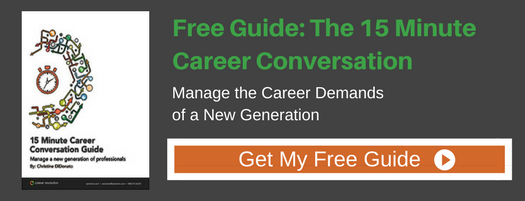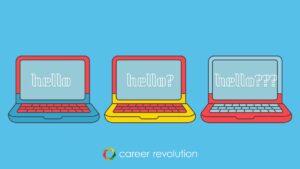You just got the results back from your employee engagement survey, and some of them aren’t great. The responses to questions such as, “I am happy with my opportunities for career development,” or “I intend to be still working for the company in a year’s time,” are low, especially with millennial employees. Now, your boss is telling you to get those scores up and provide employee engagement coaching to your team. Except, that’s the extent of the coaching you receive.
You need help and fast. First, here are two key statistics you should know. Professional learning and development are the benefit millennials value most from their employers. The training or development opportunity they want most is working with strong coaches and mentors. If you can get your millennial employees to see you as a coach, your engagement scores will likely increase.
So, how can you learn to be a coach when no one is giving you the guidance you need? And how can you do it in a way that doesn’t create more work for you?
That’s where these three types of questions come in to play. When you introduce these questions into your everyday talks or touch base meetings, employees will begin to see those conversations as career development and coaching.
QUESTIONS TO ASK FOR CAREER COACHING
The key to being a good coach is to ask questions that will get your employees to reflect on their career path. At Career Revolution, we recommend focusing your questions on three key areas.
#1 WHERE HAVE THEY BEEN?
Examples of questions include:
- What would you describe as your biggest strength?
- What project did you complete in the past year that made you feel successful?
- What was the most frustrating project you worked on recently?
#2 WHERE ARE THEY NOW?
Examples of questions include:
- How can I best help you in your current role?
- What is your favorite part of your current role?
- What one skill would you like to develop to improve in your current role?
#3 WHERE ARE THEY HEADING?
Examples of questions include:
- What does ultimate success look like for you in the next year? What about three years from now?
- What task or project type would you like to do more frequently in the future?
- What task or project type would you like to do less frequently in the future?
This list is only the starting point. As your conversations evolve, so will the questions you ask.
One more tip, don’t make this conversation about you. After asking a question, get comfortable with silence. Give the employee time to digest and respond. Don’t jump to a solution or conclusion. Instead, let this person explore their thoughts and emotions. If the conversation stalls or if the employee seems stuck on a particular question, you can give them an assignment to do more discovery in that area and have a targeted follow-up talk.
By sliding these types of questions into your regular interactions, you can make any conversation a career conversation.
If you want to take it to the next level, set aside 15 minutes for a focused career conversation with each employee. It could save you $15,000 or more a year.








